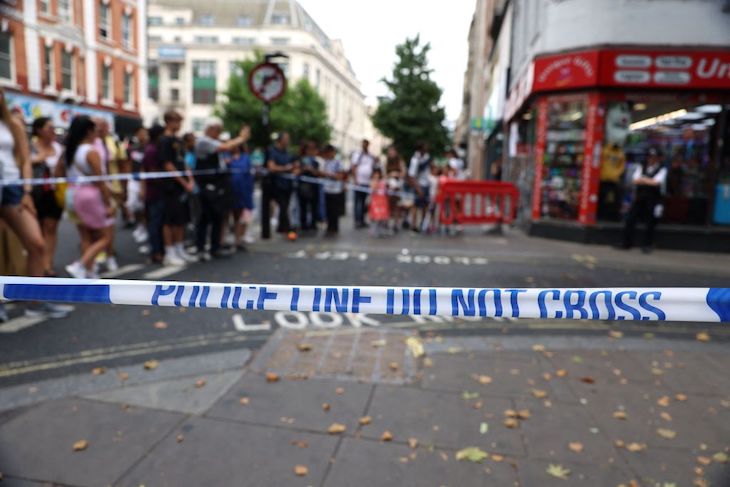Israel’s security cabinet yesterday approved the Israel Defense Force’s plans for a major operation into Gaza City. The cabinet decision comes after the mobilisation of 60,000 IDF reservists over the past week. Israeli forces are already operating on the outskirts of the city. Should the operation commence, it appears set to bring five Israeli divisions into areas of Gaza as yet untouched in the course of nearly two years of war.
At a certain point a decision must be made. Hamas must be either conceded to or destroyed
Prime Minister Benjamin Netanyahu has described Gaza City as containing Hamas’s ‘last strongholds.’ In a statement made before yesterday’s cabinet meeting, Netanyahu described the war as at its ‘decisive stage.’ He also, however, appeared to hint that he has not abandoned the path of a negotiated settlement to the war, noting that he has ordered a new round of negotiations for the release of all remaining hostages and an end to the war ‘on terms favorable to Israel.’
The opposition in Israel, along with representatives of hostages’ families are determinedly opposed to the Gaza City operation. They demand that Israel should agree to the latest proposal put forth by Qatari and Egyptian mediators, according to which Israel should accept a 60-day ceasefire in return for the release of ten hostages.
More fundamentally, the opposition want an end to the war, in return for the release of all hostages, even if this means that Hamas survives as an organised political and military force in Gaza when the guns cease. Their contention is that Hamas is anyway massively damaged, and that failure to bring home the hostages will cause irreconcilable damage to Israel’s social cohesion and the contract between state and society.
The internal strains currently apparent in Israel indicate that the contradictions that have been apparent from the outset in Israel’s war aims are now becoming increasingly irreconcilable. This in itself is testimony to the demonic cunning that has lain at the heart of Hamas’s strategy for the conduct of the war since its outset. It remains to be seen if this strategy will yet lead to the group’s survival of, and hence victory in, the struggle now under way.
Israel’s stated twin aims in the war in Gaza are the bringing home of the Israeli hostages and the destruction of the Hamas authority which has ruled in the Strip since 2007. There is a fundamental contradiction at the heart of these two aims. It is not possible to negotiate with an entity and at the same time determinedly seek its wholesale destruction. Ultimately, logic and reality dictate that you will have to favour one aim over the other.
The opposition in Israel and the main organisations representing the hostages’ families have a clear eyed solution to this dilemma: namely, prioritising the former goal and effectively abandoning the latter. A smaller but no less notable population on the hard right of the Israeli political spectrum favour the opposite route – prioritising the conquest of the entirety of Gaza, to obliterate the organised Hamss presence there, to the detriment of other considerations.
For nearly two years, the government of Prime Minister Benjamin Netanyahu has tried to juggle these two aims, applying military pressure on Hamas while at the same time negotiating for the release of hostages. Netanyahu has achieved considerable success with this fudge. Hamas has suffered massive damage. A large number of hostages have come home (in return also for the release of large numbers of convicted Palestinian terrorists guilty of the murder of Israelis).
This attempt to square the circle is also the reason for the sometimes apparently incoherent appearance of Israel’s ground campaign, in which areas of the Strip have been conquered, then abandoned, then conquered again. No effort to conquer the Strip in its entirety was being made. Rather, the intention was to keep Hamas under pressure and reduce its capacities, while negotiating for the return of the hostages. Of course, it is also the case that the prolonged, indecisive campaign which has resulted has led to damage to Israel’s international standing and alliances. There is little evidence, however, that this is of current pressing concern to the prime minister.
The problem is that the contradiction cannot be glossed over indefinitely. Hamas will not release the final hostages and then consent to its own destruction. It will also not, as must now be apparent, agree to relinquish control of Gaza, release the remaining hostages, disarm and depart, regardless of the amount of pressure applied. Rather, it will end the war and release the remaining hostages only in return for its own guaranteed survival. Which means at a certain point a decision must be made. Hamas must be either conceded to or destroyed.
As of now, Israel is in control of around 75 per cent of the Gaza Strip. Gaza City and its environs account for a considerable part of the remaining area. The city is well fortified, and contains high rise buildings as well as a warren of alleyways. Taking it is likely to be complex and costly.
If Hamas comes out of the current war battered but intact, which is its current state, and if Israeli forces withdraw from Gaza as part of a deal to end the war, then a historic precedent will have been set. It is one which will be unlikely to escape the attention of Israel’s enemies.
An Arab military force will, for the first time since 1948, have taken and held territory west of the Jordan River, and then successfully resisted by military means an Israeli attempt to recover that territory. The taking of Israeli civilian hostages will be understood to have been the decisive factor in ensuring this achievement.
Hamas’s leveraging of Israel’s concerns for its citizens (in stark contrast to Hamas’s evident indifference to the fate of its own civilians) will have the appearance of strategic brilliance about it, albeit brilliance of the most evil and cruel variety. It will then be likely to spawn many repeats and imitations, among the sizeable Islamist camp committed to Israel’s destruction.
This is the matter now under contention. In the days ahead, Netanyahu’s decision (or his preference for continuing to refuse to decide) will become apparent.








Comments